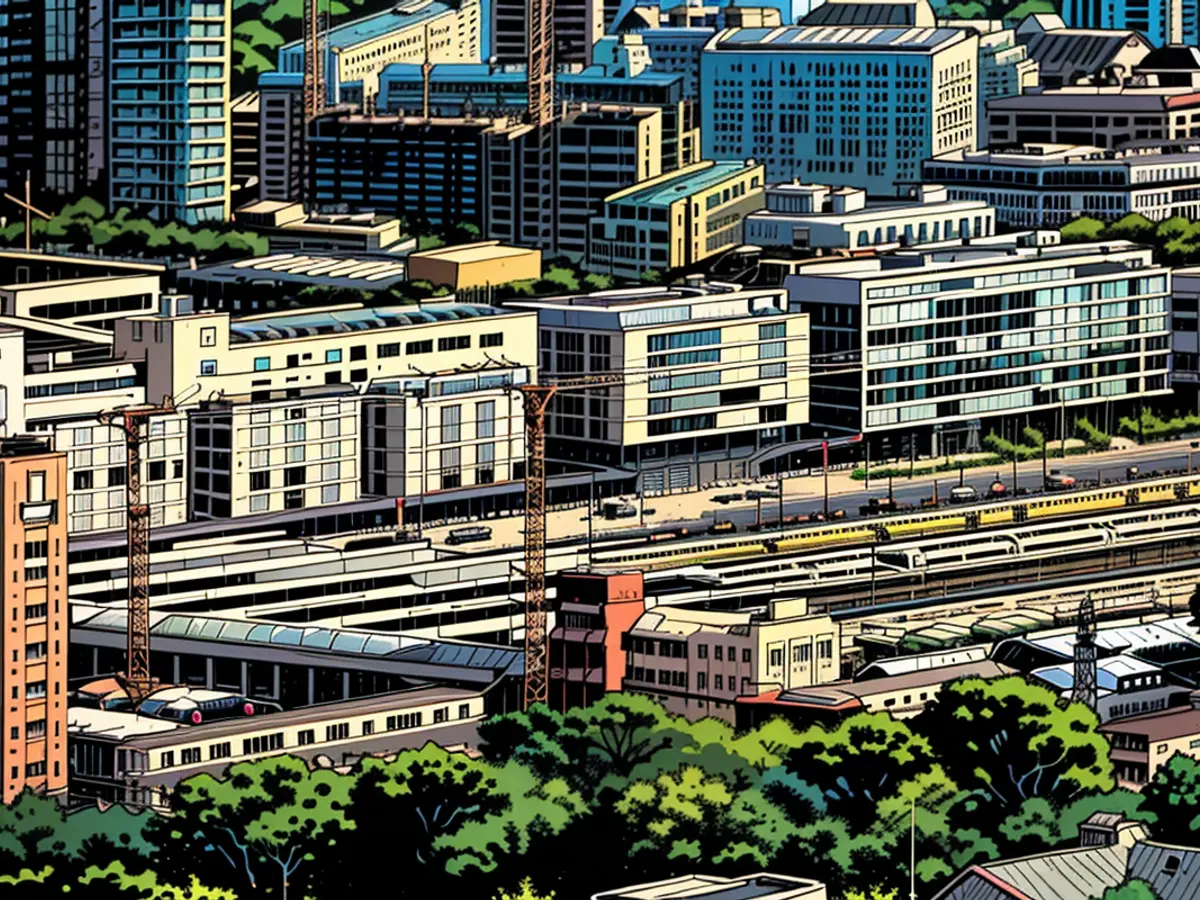Railway yard in Stuttgart - Cities fear construction projects due to new legal situation
A new legal situation makes major construction projects on unused railway tracks a near impossibility from the perspective of the German City Council, which could particularly be a problem for the city of Stuttgart. The city plans to build thousands of housing units on the railway yard of the soon-to-be-abandoned Stuttgart Main Station. However, this will reportedly become much more difficult with the legislative change. The City Council refers to this in a letter to its members, which was obtained by the German Press Agency.
Specifically, it's about a change to the General Railway Law. The entwidmement of no longer needed railway tracks, so they can be sold and used for other purposes, is regulated in it. Since the legislative change at the end of last year, railway operation areas are considered of "overriding public interest." Only if other projects have greater public interest can the lands be used accordingly.
The Federal Government aims to prevent the sale and development of railway lands that might still be needed later. However, the new rules impose high hurdles for every other project, fears the City Council.
City Council: Only projects of overriding significance possible
Accordingly, only projects that are also significant under law can be implemented on the lands now, the Association states, referring to the competent Railway Federal Office (EBA). These could be projects for the benefit of state defense, wind or solar projects, or certain federal highway projects. "The construction of housing or the creation of jobs does not belong to that," the City Council at least interprets the EBA's statements.
This could also be a problem for Stuttgart. For the railway yard of the main station, the city has not yet filed a withdrawal application. This is evident from an answer of the Federal Government to a corresponding inquiry of the Green politician Matthias Gastel. The new law does not allow for the withdrawal of the railway yard for building purposes, as planned by the city of Stuttgart, the deputy noted.
City of Stuttgart has constitutional concerns
However, Stuttgart sees it differently. The Federal Government is not authorized to keep railway lands as a reserve, a spokesman for the city-state stated: "As long as there are no positive plans of the Federal Government for the lands, they cannot be taken out of the planning area of the cities and municipalities." The future use of today's railway lands is not planned by the Federal Government in Stuttgart. "The mere retention of the possibility of future railway use by the Federal Government through the Bund does not suffice constitutionally to deny the withdrawal of today's railway tracks in the city center," the spokesman added.
However, the City Council warns in its letter of consequences beyond Stuttgart: "As we have learned from a first survey among the members of the Building and Transport Committee of the German City Council, it is to be expected that numerous projects on site – especially housing construction projects – will come to a standstill." The city of Stuttgart announced that it will now network with other affected parties and fight for the protection of its rights.
Gastel acknowledges the problem but continues to demand high hurdles for the withdrawal of rail tracks. "We, as the Greens, will not generally be in the way of a construction on the railway platform," he stated. His party is ready for another change to the Railway Law. "For Stuttgart and elsewhere, it must continue to involve high hurdles and strict conditions for withdrawals: Exemptions from railway operations may not obstruct the railway growth pursued by this and previous federal governments," Gastel emphasized. The federal government's goal is to double passenger numbers by 2030. "No possibilities for achieving this goal may be built anywhere," Gastel stressed.
- Despite the challenges posed by the new legal situation, the city of Stuttgart continues to plan for the construction of thousands of housing units on the unused railway tracks of Stuttgart Main Station.
- The Federal government's aim to prevent the sale and development of railway lands that might be needed later has caused concerns among cities, particularly Stuttgart.
- According to the Association, only projects of overriding significance can be implemented on the lands now due to the change in the General Railway Law.
- Matthias Gastel, a Green politician, expressed his concern about the new rules, stating that they impose high hurdles for every other project.
- The city-state of Baden-Württemberg, where Stuttgart is located, has constitutional concerns regarding the Federal government's right to keep railway lands as a reserve.
- The construction of housing or the creation of jobs is not considered of overriding significance under the new rules, according to the City Council's interpretation of EBA's statements.
- The railway yard of Stuttgart Main Station has not yet had a withdrawal application filed, as evidenced by the Federal Government's response to a corresponding inquiry from Gastel.
- The city of Stuttgart has announced that it will network with other affected parties and fight for the protection of its rights, warning of potential consequences for cities beyond Stuttgart.








